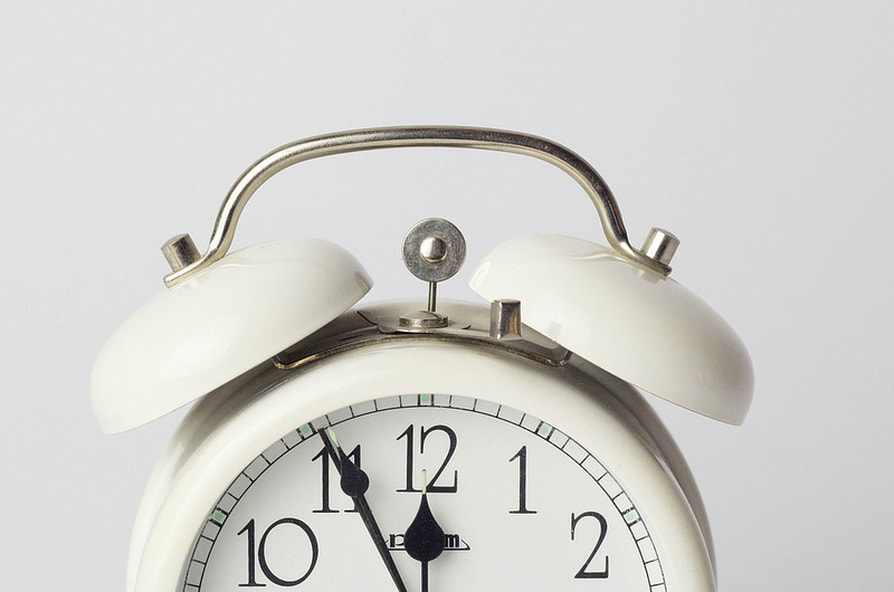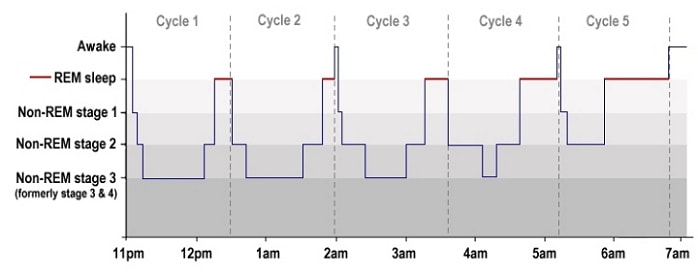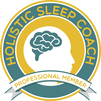|
As a Relax Kids Coach who works with School age children, showing them relaxation, stretching, breathing and self-esteem techniques, I get asked A LOT about Sleep! I’m not surprised as sleep problems are very common but not always identified. It is reported that about 25% to 40% of all children and young people have some kind of sleep problems during their childhood. The common scenarios are:
Battling bedtime - up and down all bedtime, hyperactive, giddy, hysterical, general off-track behaviour
I am a Relax Kids Coach who specialises in child sleep I get asked this question so much and found myself repeating the same responses over and over again that it felt wise to write a detailed blog post. Firstly, it would be useful to talk about how and why we sleep, we need to sleep for our brain and body to grow and develop, simple. Why Your 6 Year Old Sleeps? The brain needs sleep for your 6-year-old to remember what they learn at School, to be able to pay attention and concentrate, solve problems and think of new ideas. The body needs sleep for your 6-year-old so their muscles, bones and skin can grow and repair, and so they can stay healthy and fight sickness. How your 6 Year Old Sleeps? How we sleep is regulated by two factors 1: The Sleep-Wake Homeostat This is how bio-chemicals (Adenosine) in our body builds up the need for sleep, the longer we are awake the higher the need for sleep or sleep pressure is, this pressure or need for sleep is highest at night-time 2: The Circadian Clock This is how the body is regulated by hormones such as melatonin, serotonin, cortisol and adrenaline which regulates sleepiness, alertness and so much more – you can see why good sleep could be elusive, lots of things will impact your child’s circadian clock. Your child will have 5 sleep cycles in the night. A sleep cycle is commonly around 90 mins and is made up of Non-Rapid Eye Movement (nRem) and Rapid Eye Movement (Rem) sleep. nRem is made up of 3 stages, 1: Dozing, 2: Light and 3: Deep. Rem sleep is stage 4 and is when your child is dreaming, it is often described as active and is very light. Each sleep cycle is different too, just to boggle your mind even more…. We get our highest percentage of deep sleep per sleep cycle in the hours from bedtime to midnight..ish, this sleep is responsible for healing, restoration, defence and growth, we get our highest percentage of dreaming sleep per sleep cycle in the early hours, this sleep is responsible for helping us to process memories and learn new skills. If our kids miss out the sleep pre-midnight they actually miss out on the best percentage of deep sleep, and it isn’t made up when they do eventually fall asleep. Likewise if our kids are waking super early they miss out on dreaming sleep and this can’t be made back up by sleeping longer in the morning either. A great book which explains this much better than me is Why We Sleep by Matthew Walker
Tips and Suggestion to Help Sleep Come More Easily
I have found that no one thing can help with sleep, it is always a combination of good sleep hygiene, syncing the body clock, assessing the daily rituals, boosting connection with parents/caregivers, releasing emotions or worry and also setting up and agreeing on sleep manners and boundaries in your family. Gosh, that actually sounds like a lot of work right! Tip #1: May the Force Be With You – Dark Vs Light Become friends with the light, your child’s body clock requires cues such as light and dark to sync it, so nice and bright and light during the day, open all the curtains in the house, do this as a first activity once awake, use a sun lamp if it is winter, encourage your child to get outside as soon as they can in the morning even if it isn't sunny outside. Have breakfast in the garden or the brightest room in the house, walk to School to get a good dose of light, and encourage outdoor play. Become friends with the dark, your child may be falling asleep with a light on due to being anxious or scared, find a better way to help with this and keep nighttime dark, use an orange low watt nightlight or a nightlight in the hall, but bedside lamps and the ‘big’ light should be switched off. Invest in good quality blackout blinds or curtains so that the early morning light isn’t switching on your child’s body clock to wake mode too early, they need 9-11 hours of sleep at this age in the night – seriously. Tablets, TV, and phone screens all emit blue light, which tricks our internal clocks into thinking that it’s still daytime and prevents the sleep hormone melatonin working. So, power down the electronics at dinnertime and keep them off until the next morning. (This goes for parents too!) This is an interesting article on the darker side of blue light Tip #2: Sleep Hygiene and the Bedtime Routine Rituals are an important element to regulate our circadian system, from the time we wake, eat during the day, do exercise and go to bed. And the bedtime routine is super easy to make some changes for big impact, research indicates the bedtime routine is associated with less sleep disruption and longer sleep duration in the night – yay! A bedtime routine can include a healthy sleep-inducing snack, but not a big meal or caffeinated drinks/sweets It should be predictable and in the same order each night to cue the mind and body sleep is coming, and be no longer that 45 mins Include some reading of books (no electronic versions, even with the special bedtime backlight) or calming colouring activities or for older kids journaling. Agree an early bedtime for your child – yes I know this is a hard one with so much time pressure on parents and kids, with after school activities and homework, the easiest way to set a bedtime is work back from what time your child needs to be up to get ready for School, knowing that the recommended sleep for a 6-year-old is 9-11 hours a night, work back, so really no later than 9 p.m. and earlier if they are struggling to get up in the morning. Even a small increase of 30 mins more sleep a night can have a positive impact on emotions and behaviour and visa versa. My 7 year old would not cope with a 9 p.m. bedtime. ( I have a cool calculator game which I am happy to share - ping me an email) I also encourage connection time with parents pre the bedtime routine, such as special time or games which involve laughter or a little crazy rough and tumble to release the tension of the day. A good bedtime routine might look like this:
About 30-45 mins from step one to lights off, much longer and it can result in a second wind, too short and it is not enough time to wind-down and relax. Research shows better sleep outcomes are associated with the more nights a week a routine is implemented, so regularity is key here or it won’t be that useful. Tip #3: Get Physical Physical exercise in the day is super important for better sleep, it is even better if it is outdoor exercise. There should be a variety of aerobic exercise and exercises to strengthen bones and muscles. Be careful that the high impact cardio stuff isn’t too close to bedtime, your child needs about 2-3 hours clear of high impact cardio exercise like football prior to bedtime. Swimming is one the my favourite exercises which you can get away with being close..ish to bedtime. The NHS recommends at least 60 minuets a day of activity. Tip #4: Sleep Inducing Foods and Nutrition Caffeine is a stimulant so best avoided in the run-up to bedtime. It is not only present in tea and coffee but can also be found in hot chocolate and fizzy drinks Fruit and natural fruit juice contains sugar which can give children a rush of energy if consumed too close to bedtime. Tryptophan is an essential amino acid that helps us to sleep and is naturally present in dairy products, turkey, and oats. So it is true . . . warm milk can help you to sleep! Melatonin is the natural hormone that we produce when it gets dark and helps us to feel sleepy at night time. Some foods contain melatonin including bananas! The research around the amounts and its impact on sleep are still rather vague but bananas also contain magnesium which does help to relax muscles. Cherry juice has been found to contain melatonin too and research suggests that consuming before bedtime can aid sleep. Having kiwifruit one hour prior to bedtime has been shown in a study to help with sleep Food allergies and intolerances have been shown to impact sleep, so it is worth checking the big culprits out, Dairy and Gluten, especially if your child had an allergy and they have ‘grown’ out of it. There is a myth that we grow out of an allergy, but this is not true, it simply doesn’t trigger in the same way or is dialled down greatly (but can be dialled up easily again, especially after an illness) Tip #5: Address the Emotional Stuff – Worry, Anxiety, Being Scared Sleep is a separation and often when our kids do sleep all night the first thing that happens in the morning is we all disappear to work or School, I can’t stress enough the difference in sleep and also how easy the morning is when I use this tool from Hand in Hand Parenting. Special Time – setting up some 1-2-1, child-directed and undistracted time every day for 5-20, this is harder than it seems, I like it to be either in the morning or just before or after dinner and stick to the same time each day so your child knows to expect that quality time together. The benefit of this is it boosts connection and often off-track behaviour is due to a break in connection which easily happens through-out the day, or after a long sleep at night. Visit Hand in Hand Parenting to see how you can use this tool and others to help with sleep. The reason I become a Relax Kids Coach was due to the higher number of children I was working with being anxious or worried and this impacting sleep. I find the 7 steps from Relax Kids brilliant to weave into the bedtime routine or as a family activity once a week, these 7 steps take you through movement and games which releases endorphins, improves communication and cooperation for bedtime, and develops confidence and self-esteem. Simple stretching techniques promote mental calm and decrease tension, the steps incorporate the all import touch which lowers stress levels and helps relax muscles and calms the nerves. You can show even very young children how to breathe to lower stress levels, calm the nerves and reduce anger, anxiety and stress. And finally using some of the fabulous resources, books and CD’s - saying nice and relaxing things to our children. You can get a free introduction pack from Relax Kids When our children are scared finding a way to allow them to release fears is so important, listening to them, playing and connecting allow that to happen, with-out even talking about the actual thing they are scared of. Tip #6: Set up and Agree Sleep Manners A really useful ingredient in a successful sleep strategy is setting up what I call Sleep Manners or Rules, I find kids understand the term sleep manners best. These are your family’s manners around sleep. In my family they are: 1. We lay in our beds (most kids do need a little tension releasing, getting comfy wiggling around, but not jumping on the bed and kicking walls and throwing teddy's about) 2. We close our eyes (a yoga mask can help) 3. We are quiet (encouraging the breathing via Relax Kids is useful here) 4. We stay in our beds until Mr Sun comes up (we have a gro clock set at 6:45, turn the blue night light off this if you have one) I have a toilet pass for the initial bedtime settling and always say if you need me in the night I will come and get you, but we stay in our own beds, I am not against bedsharing whatsoever but I don’t want my kids sleep disturbed by waking and swapping beds in the night on a regular basis at this age. These are my non-negotiables and if my kids are not following the sleep manners (sensibly enough) a limit or consequence is brought, this is a trickier part as the consequence needs to match the off-track behaviour, for example if your child was throwing their teddy up and down, then taking it away for a few minutes before returning it while reminding them about the sleep manners can work well. You don't take teddy away for the whole night, just increments of time, with each time you need to take it away the time is increased, say from 1 min to 2 then 3 and so on. I have a bedtime toolkit and support package designed to help with bedtime battling and bringing a consequence that works and stops the endless off-track behaviour and parents being inconsistent on boundaries, or worse starting to shout or threaten crazy punishments which you will likely (hopefully) never follow through with. Lots of parents find role playing bedtime and the sleep manners helps either together or with toys such as small dolls, dinosaurs or soft teddies. Getting your child involved and talking with them about the importance of sleep is a great tool in setting up a sleep strategy too. I find all of these elements together helps a 6-year-old sleep better, it can take around 2-3 weeks to see big changes, but within the first 7 days the families I work with see improvements. If you want to work with me in helping you implement some or all of these strategies the best way to see how I can help is booking an informal chat. Nadia is a an Accredited Holistic Sleep Coach and Certified Sleep Sense™ Consultant and holds a UK degree level qualification in Advanced Sleep Training, she draws on her experience as a Relax Kids Coach, her professional training with Hand in Hand Parenting and continued degree course in Child and Youth Studies. Check out my kit of favourite things from AmazonComments are closed.
|
Categories
All
|
Site Links |
Copyright © - Nadia Edwards 2024, 3 Northbank Road, Cairneyhill, Dunfermline, Fife, KY128RN | Sitemap





